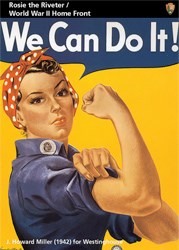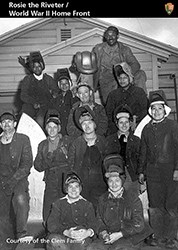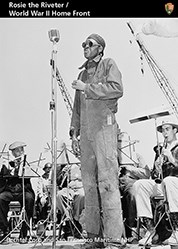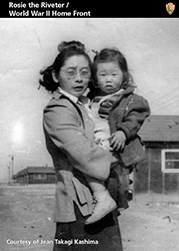Collect Civil War and Civil Rights Stories!Hey kids! The National Park Service has created over 500 trading cards to celebrate the 150th anniversary of the Civil War. Visit a participating park to earn your cards in person (sorry, cards cannot be mailed). Just ask a ranger or stop by the visitor center. You can also view all the cards online and discover fascinating stories from nearly 90 national parks across 31 states and the District of Columbia. Get ready to be amazed by what you'll learn! 
We Can Do It! Many WWII propaganda posters encouraged unity and urgency to boost wartime production. Women, like this symbolic Rosie The Riveter, did tough jobs that many men doubted women could do. The riveters, welders, electricians, etc proved that women could do anything, and enlarge future choices for women in the workplace. The poster had a second life in the 1970s when women organized for their civil rights. 
An Equal Right To Work Welding crew in Kaiser Shipyard, Richmond, CA 
Pioneer for Union Rights Joe James, Welder at Marinship Sausalito, CA 
Prisoners in their Own Land Amy Oishi Takagi and Jean Takagi Kashima |
Last updated: August 4, 2024
